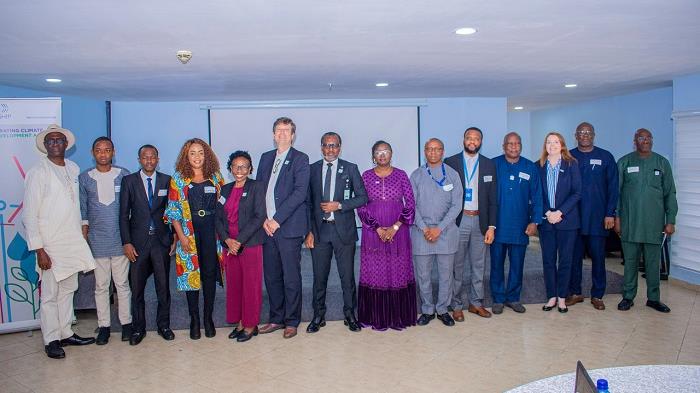The projected cost of implementing Nigeria’s Nationally Determined Contributions (NDCs) within the next seven years is in the region of $543 billion.
The disclosure was made by the immediate past Minister of Environment, Mohammed Abdullahi, in a keynote address he delivered at the Stakeholders’ validation meeting on the Nigeria’s NDCs & Energy Transition Plan (ETP) Implementation Framework held in Abuja from May 24 to 25, 2023.
At the heart of the Paris Agreement and the achievement of its long-term goals, NDCs embody efforts by each country to reduce national emissions and adapt to the impacts of climate change.
While stressing that the gaps for funding climate action (from both domestic and international sources) in the country is huge compared to the magnitude of the problem, Mohammed pointed out that mobilising these resources require an efficient and robust plan capable of attracting investments and funding NDCs related activities.
According to him “The Implementation Framework will act as a tool for mobilising resources, coordination and reporting for progress towards meeting the nation’s Paris commitments.
“We must therefore collaborate and engage all relevant stakeholders, including government agencies, international partners, the private sector, and communities, to ensure that we achieve our targets.
It is also important to ensure that our efforts are equitable, leaving no one behind, and that we maximise the opportunities for sustainable economic growth,” he said.
He pointed out that the NDC Implementation Framework Validation meeting and NDC-ETP Alignment Stakeholder Engagement workshops provide a platform for all stakeholders to review and provide feedback on Nigeria’s efforts towards meeting its climate commitments.
This, he added, is a crucial step towards achieving stated climate goals and ensuring a sustainable future for generations to come.
The Director Overseeing Office of Permanent Secretary, Federal Ministry of Environment, Mr. Charles Ikeah, described climate change as one of the greatest challenges facing the planet today, adding that Its impacts are being felt around the world, with devastating consequences for people and the environment.
“Nigeria, like many other countries, is not immune to these impacts, and we have a responsibility to take action to address the root causes of climate change,” he said.
In her remarks Director, Department of Climate Change in the Federal Ministry of Environment Dr. Iniobong Abiola-Awe, disclosed that, Nigeria, like many other countries, has made commitments under the Paris Agreement to reduce its greenhouse gas emissions and adapt to the impacts of climate change.
According to her, the development of the NDCs Implementation Framework is a critical step in ensuring that Nigeria can effectively implement its climate commitments and achieve its climate goals. She described the process as a collaborative effort involving relevant MDAs.
Nigeria’s revised NDCs contain both mitigation and adaptation measures in priority sectors that include: Agriculture (land & forestry), Transportation, Oil and Gas, Energy, Industry, Waste, and Water.
Beyond the Paris Agreement, Nigeria has committed to net-zero emissions by 2060, in line with the Energy Transition Plan (ETP), which was launched in August 2022, and the Long-Term Low Emission Development Strategy, underway.
The Paris Agreement on Climate Change was signed in 2015 with the aim of limiting global warming to well below 2 degrees Celsius above pre-industrial levels and pursuing efforts to limit the temperature increase to 1.5 degrees Celsius.
Nigeria submitted an ambitious updated NDC as its commitment to the Paris Agreement in July 2021. The updated NDCs commit Nigeria to reduce emissions by 47% from 2018 BAU (business as usual) projections, conditional on international support and 20% reductions through unconditional measures by 2030.





